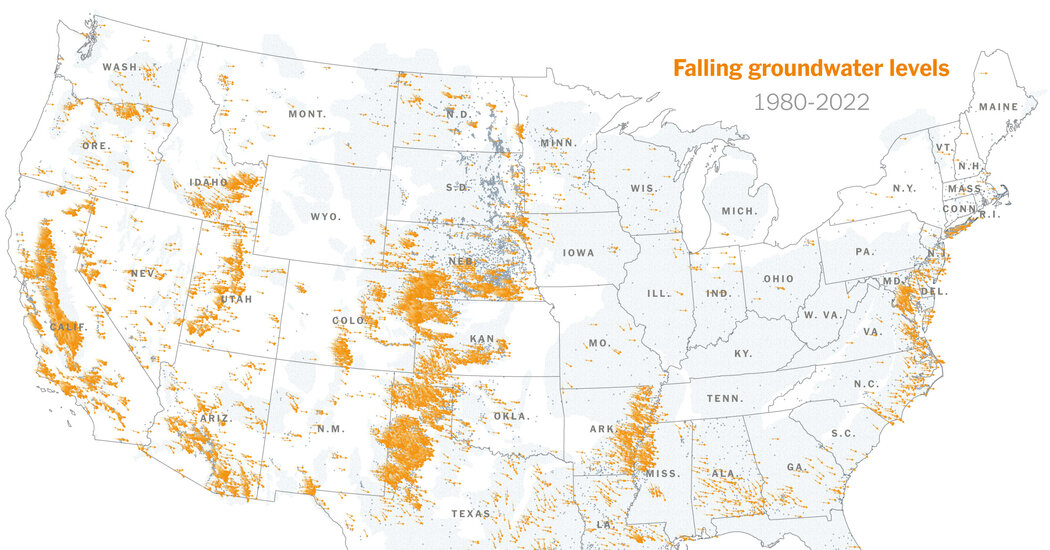- cross-posted to:
- news@lemmy.world
- cross-posted to:
- news@lemmy.world
deleted by creator
Hold the fuck up. We’ve shifted the axis?!
I am not downplaying climate change here, but how much of tilting the earth’s axis affects the weather (fronts, storms, etc) and what we’re seeing with climates? Could this be a bigger deal then human consumption and CO2?
Once again, not saying give up on other efforts. We know things change with the moon and rotating around the sun, so what are the repercussions here compared to CO2 and other man made factors? Is one a bigger impact than the other and is one easier to solve for?
The article doesn’t give these specifics, but it does say how much we’re shifting yearly which seems significant.
Why would you think the answers would be known? Especially when the GOP outright bans reports containing such trigger words as “global warming” and “climate change” (oh right, but it’s the other side that cancels things, got it!:-P). Donald Trump even banned Yellowstone National Park from releasing raw data in the form of numeric measured temperature data from thermometers set up to do just that.
Global warming doesn’t exist, and you won’t say otherwise if you know what’s good for you, capiche!? Or your family, who goes to school at… \ every day at \AM.
Guess we’ll have to turn to a billionaire to save us, I reckon? Fortunately, they say they have our absolute best interests at heart, yup yup!:-D
I’m not really sure what your answer was trying to get at here. Did you think I’m some MAGA nut trying to downplay climate change? I’m not.
I was honestly trying to see if analysis has been done and whether one of these issues was the better to go after solving first, or not, due to overall positive impact of reversal.
Why so serious? It’s not like the entire fate of humanity is at sta… oh wait, right…:-(
No, I was just joking around (gallows humor, a desperate act to deal with the apocryphal events unfolding in our lifetimes) - but to be clear, I meant it be like alongside with you rather than at your expense. No worries, I do not think ill of you at all:-). (whereas if I thought you were a MAGA nut, I assure you I would not have responded at all:-) - there just would be no point to that) Sorry that I did not make that more clear.
Hahaha. All good, friend!
As someone that has a kid, I do hate what we’re doing to this planet and worry so much about what he and others in the future will have to put up with.
You would have to be an insane MAGA nutjob to not worry about that these days! There is more reason for hope than it seems though, as explained in this Kurzesagt video. We need to not get complacent… but there is still some hope.:-)
deleted by creator
We knew this, the Greatest Generation told us about this and taught us to conserve water and try to stop wasting stuff like this.
Then boomers came along and said all this didn’t matter, details weren’t worth their time.
They said its all a conspiracy from the left so that we couldn’t enjoy life as much.
Or some dumb shit like that
Everything is a conspiracy by the government to restrict their fun.
We need to cancel Medicare and social security for a few years, free them from big government so they can truly live.
Like There’s No Tomorrow
well…
“Two Days Before the Day After Tomorrow”
Humans over using a natural resource to the point of detriment to the species? Well I never…
Chance to just announce something…
FUCK NESTLÉ
The government should ration water supplies to the people in the form of credits for so many gallons per year. If anyone, especially ranchers, farmers, water bottlers, or fracking companies, needs some extra water, they can buy the credits for it on the market from whomever didn’t use all of theirs.
Stop it. Capitalism doesn’t magically fix problems. See carbon offsets for an example of this fail
I’m talking about government controlled rationing. A committee of geologists and engineers and whatnot determine what could be sustainably drawn from each water source, add it up, and divide it among the population. The market mechanism essentially serves a means to redistribute wealth from the rich who use too much water on their lawns to the poor who often don’t even have lawns as well as force industry to really account and pay for this common resource. Just because a market is involved doesn’t mean that it’s capitalism. I don’t think carbon offsets work like what I suggested at all.
Make sure that all credits aren’t equal and they increase with use. i.e. if I use “1 credit” and it costs $1, 1000 credit’s needs to cost more then $1000. You can play with the math but the idea is that a house hold should be way cheaper per unit of water then trying to grow corn in the desert.
The credits aren’t dollars of water. They’re kilograms of water. Every individual gets an equal allocation (per month or year) at no charge. If you get more than you need then you sell it at market rate, maybe to that corporation trying to grow corn in the desert. Chances are that as a result, their water costs will be infinitely more than a given household. At the end of the day, no more water will have been taken from the reservoirs and aquifers than is sustainable because only so many kilograms of water were rationed.
That’s a bad idea imo, because it just encourages cronyism so either some groups are exempt or just not properly monitored (see carbon credits). And then there are issues such as water rights, which at least in my area exceeds the amount of actual water available.
In my area, water rights are a use it or lose it system, so farmers have an incentive to waste water they don’t need. It’s a stupid system, but it’s a property rights issue, so it’s more complicated than it should be.
But even once we solve the water rights issue (and this would apply to other countries), credits are just another use it or lose it system. Our water use should change with availability, and many industries like farming aren’t okay with variable water use, so you shouldn’t change the amount of credits year over year. Also, water availability isn’t the same across regions (e.g. Western Washington in the US has plenty of water, while Eastern Washington relies on reservoirs). So your credits would need to apply per watershed, which is complicated, especially since water can often be moved between watersheds if needed.
I think a better system is:
- Buy out water rights and replace with longer term water price contracts - you could lock in your water rates for, say, 5 years, and renegotiate at the end; these contracts would be non-transferable, and would come with caps, above which current rates apply
- Set water rates based on availability and cost to transport water, which would work just like residential water bills ($X got the first Y volume, $Z after, etc)
- If water use exceeds supply, use the excess revenue to improve reservoir infrastructure, build pipelines, etc
So the more demand there is, the higher prices go. We could have a relatively stable lower amount to accommodate the majority of residential uses so water bills remain fairly stable.
You’re the second person to make a comparison to carbon credits, but that’s totally different. As I understand it, the source of carbon credits is totally dubious in the first place and they’re only valuable to the extent that they ease liberals’ guilt. You don’t even need them to fill up your car or anything. I’m talking about a system where instead of spending dollars to get water, you’d have to spend water credits. As I replied to that other person:
I’m talking about government controlled rationing. A committee of geologists and engineers and whatnot determine what could be sustainably drawn from each water source, add it up, and divide it among the population.
And that’s what carbon credits are, they’re essentially a license to emit a certain amount of pollution. Your water credits would be a license to use a certain amount of water. It’s the same thing, with the main difference being the justification for the amount of credits available.
If you charge based on use, people will adjust their usage to match their budget. If you distribute credits, people won’t need to optimize unless they’re going to run out. So to get reduction with credits, you basically have to keep reducing how many credits you give out, and deciding who gets the reduction can quickly become political.
So that’s why I prefer to just charge based on use. It’s simpler and has fewer conflicts to worry about. Cities can set a rising rate based on use, so the more you use, the more each additional unit of water costs. That way heavier users have a larger incentive to cut back than lighter users, which is as it should be.
If my idea for water rationing were applied to greenhouse gas emissions, the way it would work is that fossil fuel companies would not be permitted to take any coil, oil, or gas out of the ground unless they could pay for the privilege with special credits to do so. The government would ration these credits to the public so as to create a hard limit on total fossil fuel extraction. The current carbon offset system doesn’t have any hard limits as far as I know.
There are caps though. My understanding is that companies get X credits, and they can sell any they don’t need to other companies, and X reduces over time. AFAIK, companies don’t create new credits, they merely trade them on the market as a finite resource.
I assume if you go over your carbon allotment, you pay a hefty fine.
If the government wants less carbon emissions, it reduces the number of credits available on the market or increases to tax credit for unused credits.






